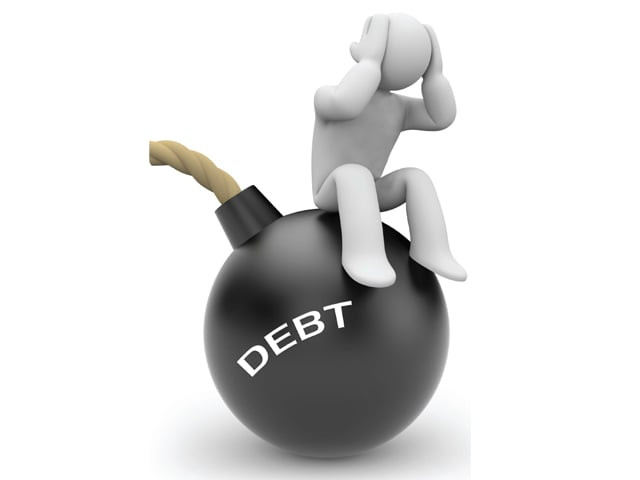Debt, price volatility plague SOEs
Energy firms face mixed fortunes like operational gains, fiscal pressures

Energy giants in Pakistan are experiencing mixed fortunes in the face of security risks, circular debt and energy transition initiatives. Leading state-owned oil and gas companies have reported operational gains, fiscal pressures as well as evolving clean energy ambitions.
From new hydrocarbon discoveries and renewable energy investments to profit declines and mounting receivables, the financial condition of Oil and Gas Development Company Limited (OGDCL), Pakistan State Oil (PSO), Pakistan Petroleum Limited (PPL), Government Holdings Private Limited (GHPL) and Pak-Arab Refinery (Parco) reveals that the sector is grappling with security constraints, global oil price volatility and persistent circular debt trouble.
While exploration and production (E&P) companies have expanded their portfolios and upgraded the infrastructure, refining margins remain under pressure, prompting urgent calls for policy reform and energy sources diversification.
Despite the mounting circular debt, the country's largest oil and gas explorer – OGDCL – has maintained its leadership in the E&P sector by holding the largest exploration acreage.
Though security concerns continue to plague the company, it has spudded five wells and completed drilling and testing of six prior wells. Three new gas and condensate discoveries were made, adding an estimated 462 barrels of crude oil and 15 million cubic feet (mmcf) of gas per day. The company fast-tracked development projects, increasing production capacity by 2,238 barrels of oil, 133 mmcf of gas and liquefied petroleum gas/sulphur.
According to the finance ministry's biannual report on federal state-owned enterprises (SOEs) for July to December 2024, OGDCL faced production challenges due to forced curtailment by Sui Northern Gas Pipelines Limited (SNGPL) and reduced off-take by power purchasers.
OGDCL focused on diversifying operations through projects like Reko Diq (8.33% stake), Abu Dhabi offshore block-5 and geothermal energy studies. For Reko Diq, a special purpose vehicle (PMPL) was set up, feasibility study was completed and financing was underway.
Drilling in offshore block-5 progressed and the Abu Dhabi National Oil Company (Adnoc) initiated technical and commercial due diligence. OGDCL is also collaborating with SLB for geothermal resource mapping and validation of nine potential fields for energy exploitation.
The company posted sales of Rs206.423 billion for the first half of 2024-25, down from Rs235.375 billion mainly due to lower production and oil prices. After-tax profit stood at Rs82.457 billion in 1HFY25 compared to Rs123.296 billion in 1HFY24, translating into earnings per share (EPS) of Rs19.17. Receivables improved significantly, estimated at 115%, due to the recovery of past dues.
Parco, the country's largest oil refinery, is a joint venture between the government of Pakistan (60%) and Abu Dhabi (40%). Its core strength lies in the integrated model – refining, pipelines and marketing – which allows better control over the supply chain and operational cost. The company's half-yearly gross margin of Rs29.9 billion is narrow compared to its sales, indicating pricing pressure and vulnerability to global crude oil price swings. Any adverse movements in international prices or supply disruptions directly impact its margins. In this cycle, forex exposure is another embedded risk since crude imports are dollar-denominated while revenue is mainly rupee-based.
The major drain came from changes in working capital – an additional Rs11.25 billion – indicating liquidity stress caused by the buildup of receivables, inventory or reduced payables. This is a key concern as negative operational cash flows reflect inefficiency, despite reporting profit.
While Parco holds a strong strategic position in Pakistan's energy landscape, its business plan must address high operational costs, excessive reliance on debt, lack of diversification and increasing climate-related risks.
According to the ministry's report, PSO continues to face circular debt challenges, with receivables reaching Rs467 billion, mostly from SNGPL. Its global and local economic outlook is steady but subdued as the International Monetary Fund (IMF) projects Pakistan's GDP growth at 3% for FY25 and 4% for FY26.
The circular debt remains a significant financial risk, particularly the Rs340 billion owed by SNGPL. PSO is working closely with the government to find solutions. Despite these challenges, PSO remains committed to ensuring fuel supply reliability and driving growth through digital transformation, infrastructure expansion and customer-focused strategies aimed at enhancing shareholder value and ensuring business resilience.
For 1HFY25, PPL posted net sales of Rs126.9 billion, down from Rs149.8 billion in the same period of last year due to declining international oil prices (to $76 per barrel from $87) and reduced sales volume. After-tax profit plunged 26% to Rs50.9 billion (EPS Rs18.71), compared to Rs68.8 billion (EPS Rs25.28) in the prior period.
The decline was attributed to reduced sales, rupee appreciation and higher operating costs. However, the company offset some of the impact through the reversal of impairment losses and insurance recoveries.
Circular debt remains a persistent challenge, requiring continuous engagement with stakeholders and price adjustments. PPL aggressively pursued expansion through farm-in and farm-out deals. It farmed into the Miran block with OGDCL and GHPL and expanded its mineral portfolio with new exploration licence applications in Balochistan.
On the financial side, GHPL effectively managed its liquidity by increasing short-term investments to Rs89 billion, ensuring stable returns from term deposits and treasury bills. The company also maintained a disciplined dividend policy, distributing an interim dividend of Rs2 billion while retaining sufficient profits for reinvestment. Its receivables from the government related to Reko Diq financing were significant at Rs71.5 billion, backed by a sovereign guarantee, thus mitigating credit risk.






















COMMENTS
Comments are moderated and generally will be posted if they are on-topic and not abusive.
For more information, please see our Comments FAQ